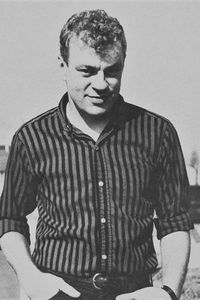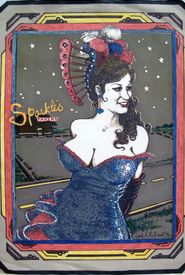Curtis A. McDowell, a multifaceted artist, was born on January 9, 1945, in Lafayette, Indiana, USA. As a director, writer, actor, and artist, he made significant contributions to the underground cinema movement. Initially, McDowell enrolled in the San Francisco Art Institute to study painting, but his interest soon shifted to filmmaking after transferring to the film department.
In the mid-1960s, McDowell relocated to San Francisco, where he immersed himself in the city's vibrant artistic scene. He was deeply influenced by the spirit of sexual freedom, personal expression, and artistic exploration that characterized the era. Although he continued to paint and draw, film became his primary creative outlet.
Underground cinema pioneer George Kuchar played a pivotal role in McDowell's career, serving as both a partner and mentor. The Roxie Theater in San Francisco was McDowell's go-to venue, where he showcased his work in collaboration with friend and commercial partner Robert Evans, the theater's owner.
McDowell's films were notable for their unapologetic depiction of sexuality, often blurring the lines between reality and fantasy. His work was characterized by its offbeat, intrusive, erotic, naked, and authentic nature, which earned him a reputation as a boundary-pushing artist.
Tragically, McDowell's life was cut short when he was diagnosed with AIDS. He passed away on June 3, 1987, at the age of 42, in San Francisco, California, USA. Despite his untimely death, McDowell's legacy continues to inspire and influence artists and filmmakers to this day.

























